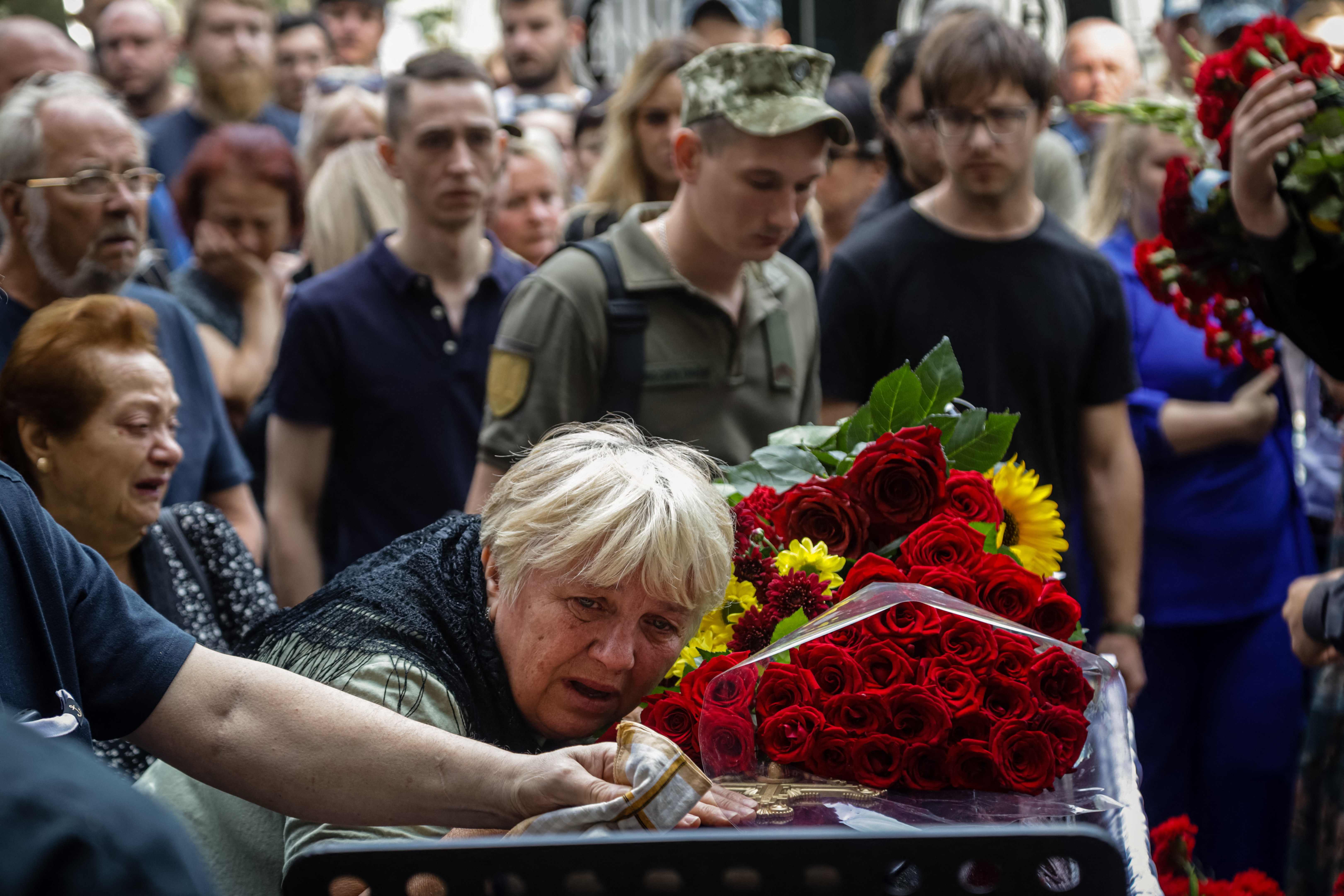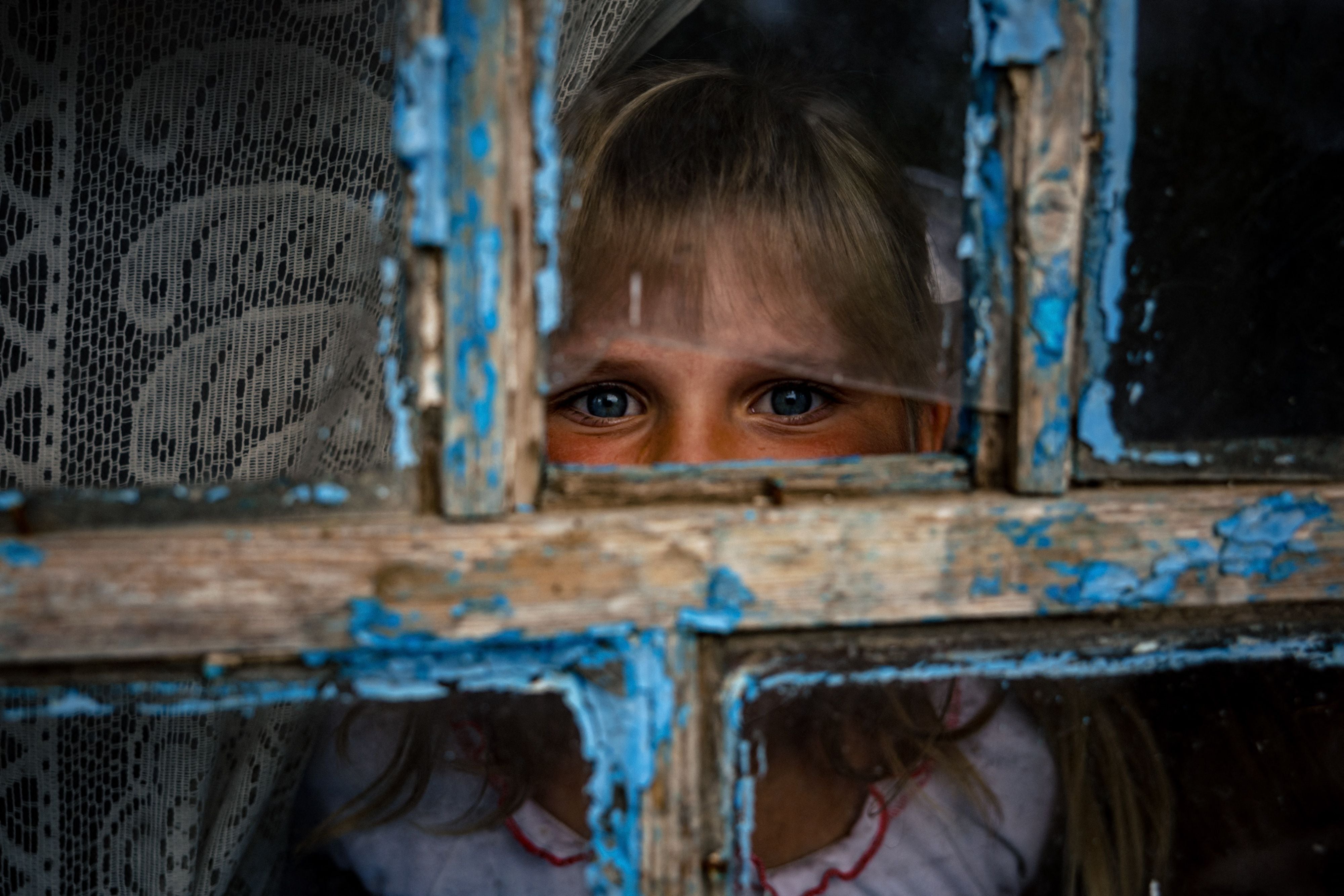Ukraine faces long and bloody fight in Kherson offensive against Russian forces
Troops on the ground say the Russians are putting up stiff resistance, says Kim Sengupta


Ukraine’s offensive in the south has been in planning for three months, and widely publicised, so there was no element of surprise when it finally began. The Russians have had time to prepare for it and dig in.
The operation is sizeable: 33 battalions in 12 brigades – around 20,000 troops, with armour and aviation support – moving on up to five fronts. The main aim is to degrade or destroy Russian forces northwest of the River Dnipro, encircle them in Kherson, and carry out further advances, including capturing the Nova Kakhovka dam, which controls the water supply into occupied Crimea.
The stakes in the Kherson mission are very high. This is the first major counterattack, apart from relieving the areas around Kharkiv, to have been undertaken by Ukrainian forces in this war. Success would be not only a strategic victory, but a hugely symbolic one. It would be a massive blow to Russian morale, and would show Western allies that it is worthwhile keeping up the steady flow of weapons to Kyiv.
The corollary is that, if the mission fails, there will be more calls for a ceasefire – to Ukraine’s disadvantage – from wearying European states, as the six-month conflict drags on into a bleak winter of rocketing energy prices and economic turmoil.
The campaign is going to be long and bloody, and no one, apart from some armchair experts in the West, thinks it’s going to be anything but hard. The Ukrainian forces have made some gains, and will continue to do so, but the time frame and the endgame remain uncertain.
The Ukrainians have captured a number of settlements – between four and six, according to differing estimates – but exactly what they have taken is unclear, possibly lost in translation. It has been claimed in the West that they have captured Tomyna Balka, which would bring them to within a dozen miles of Kherson.
Reaching Tomyna Balka would have involved a fighting advance across open ground, with the forces susceptible to air and artillery strikes. Ukrainian troops on the ground say they have seen little evidence of such an engagement and, in any event, they would not have expected to make such a movement in so short a time.
What happens at Tomyna Balka – a village that had just over 1,500 residents before the war and is now largely deserted – will mean little to outsiders. But possession of it, if and when it takes place, will mean that the Ukrainians are within striking distance of Kherson, bringing them directly into contact with Russia’s 49th Combined Arms Army, which has been tasked with the defence of the city. That has probably not happened yet.
This is not to say that the Ukrainians won’t be able to reach their objective of Kherson. The Russian supply lines are stretched and fraying. Ukrainian use of American- and British-supplied HIMARS (high-mobility artillery rocket systems) and MLRS (multiple-launch rocket systems) have destroyed the key Antonovskiy Bridge over the Dnipro. Pontoon bridges built by Russian engineers have come under attack.

A Pentagon official told American reporters this week: “We’ve seen a good number of reports talking about the morale of the Russian soldier ... in the Kherson pocket. Imagine you’re a Russian soldier, a couple of months into it, and you’re getting hit pretty hard by artillery and HIMARS. And so add that to already bad morale, and bad troop numbers ... and I’ve got to think that the Ukrainians have seen that as well, and are working to take advantage of it.”
Opposing troop numbers are, in fact, about evenly matched. And bad morale or not, Ukrainian troops on the ground say the Russians are putting up a stiff resistance.
Artem, an artillery captain under the Ukrainian Southern Theatre Command, said: “The fighting has been hard already, and it’s going to continue to get harder; we know that. It is not the case that the Russians are just fleeing. We lost a lot of people in the Donbas, when some experts outside the country were saying that the Russians are pretty poor.
“We know how important this operation is for Ukraine, and we are very grateful for all the help our Nato allies are giving us; what we can’t do is underestimate the task in front of us.”





Join our commenting forum
Join thought-provoking conversations, follow other Independent readers and see their replies
Comments